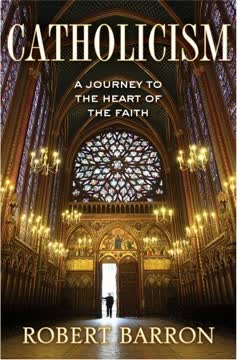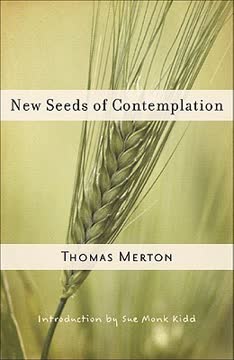Key Takeaways
1. Spiritual awakening begins with recognizing the emptiness of materialism
The love of pleasure is destined by its very nature to defeat itself and end in frustration.
Emptiness of materialism. Merton's journey begins with a profound realization that the pursuit of worldly pleasures and success ultimately leads to a sense of emptiness and frustration. This awakening is often triggered by:
- Disillusionment with the promises of consumer culture
- Recognition of the fleeting nature of material satisfaction
- A growing sense of spiritual hunger that cannot be filled by worldly pursuits
The author's experiences in academia, social circles, and his pursuit of literary success all contribute to this realization, pushing him towards a search for deeper meaning and purpose in life.
2. The journey to faith is often marked by intellectual and emotional struggles
I had never had an adequate notion of what Christians meant by God.
Intellectual and emotional turmoil. Merton's path to faith is not a smooth one, but rather a journey filled with doubts, questions, and internal conflicts. This struggle is characterized by:
- Grappling with philosophical and theological concepts
- Confronting personal biases and misconceptions about religion
- Reconciling intellectual understanding with emotional and spiritual needs
The author's background in literature and philosophy both helps and hinders his journey, as he seeks to understand faith through an intellectual lens while also experiencing emotional and spiritual stirrings.
3. Conversion is a process of gradual transformation, not an instant change
Perhaps if I had only had some conscious need of God, some realization of my own insufficiency, my own helplessness to achieve any good by my own strength, I would have been able to come to a knowledge of Him.
Gradual transformation. Merton's conversion is not a sudden event but a gradual process of transformation that unfolds over time. This process involves:
- Accumulating experiences and insights that slowly shift one's perspective
- Encountering key individuals and ideas that challenge existing beliefs
- Moments of clarity and insight interspersed with periods of doubt and confusion
The author's journey from atheism to Catholicism is marked by a series of encounters, readings, and personal reflections that slowly reshape his understanding of faith and spirituality.
4. The Catholic Church offers a rich tradition of intellectual and spiritual depth
I discovered not only that no idea of ours, let alone any image, could adequately represent God, but also that we should not allow ourselves to be satisfied with any such knowledge of Him.
Rich Catholic tradition. Merton finds in Catholicism a depth of intellectual and spiritual tradition that appeals to his scholarly inclinations. This tradition is characterized by:
- A long history of philosophical and theological inquiry
- A rich liturgical and sacramental life
- A diverse array of spiritual writings and practices
The author is particularly drawn to the works of Catholic thinkers and mystics, finding in them a bridge between his intellectual pursuits and his growing spiritual hunger.
5. True conversion requires more than just intellectual assent
I had never prayed in the churches I had visited.
Beyond intellectual assent. Merton realizes that true conversion involves more than just agreeing with religious ideas; it requires a fundamental change in one's way of living and thinking. This realization involves:
- Recognizing the limitations of purely intellectual approaches to faith
- Embracing the need for personal prayer and spiritual practices
- Allowing faith to transform one's daily life and decisions
The author struggles with moving beyond his intellectual understanding of Catholicism to a lived experience of faith, recognizing the need for personal commitment and spiritual discipline.
6. The sacraments and prayer are essential for spiritual growth
I left the altar rail and went back to the pew where the others were kneeling like four shadows, four unrealities, and I hid my face in my hands.
Importance of sacraments and prayer. Merton discovers the transformative power of Catholic sacraments and prayer life. This discovery includes:
- The profound impact of the Eucharist on his spiritual life
- The role of confession in personal growth and self-reflection
- The importance of regular prayer in maintaining a connection with God
The author's experiences with the sacraments, particularly his first communion, mark significant milestones in his spiritual journey and deepen his commitment to the Catholic faith.
7. Embracing a life of faith demands ongoing commitment and self-reflection
I had come, like the Jews, through the Red Sea of Baptism. I was entering into a desert—a terribly easy and convenient desert, with all the trials tempered to my weakness—where I would have a chance to give God great glory by simply trusting and obeying Him.
Ongoing commitment. Merton learns that conversion is not the end of the journey but the beginning of a lifelong process of growth and commitment. This ongoing journey involves:
- Continuous self-examination and spiritual reflection
- Navigating the challenges of living out one's faith in a secular world
- Deepening one's understanding and practice of faith over time
The author struggles with maintaining his spiritual fervor after his initial conversion, realizing the need for ongoing effort and dedication in his faith journey.
8. The pursuit of worldly success can hinder spiritual development
I was becoming a Communist.
Worldly distractions. Merton recognizes that his pursuit of literary success and academic achievements often conflicts with his spiritual growth. This tension is evident in:
- The temptation to prioritize career advancement over spiritual development
- The challenge of balancing intellectual pursuits with spiritual practices
- The need to reorient one's ambitions in light of faith
The author grapples with reconciling his literary aspirations and his growing sense of spiritual vocation, ultimately leading him to consider a more radical commitment to faith.
9. Spiritual guidance and community support are crucial for sustaining faith
I should have begun at once, in the first place, to go to Communion every day.
Importance of guidance and community. Merton realizes the vital role of spiritual direction and community support in nurturing faith. This realization includes:
- The need for experienced spiritual guides to navigate the challenges of faith
- The importance of a supportive faith community for encouragement and accountability
- The value of Catholic traditions and practices in providing structure for spiritual growth
The author regrets not seeking more guidance and support in the early stages of his conversion, recognizing how this could have helped him avoid many spiritual pitfalls.
10. The journey of faith ultimately leads to a deeper understanding of oneself and the world
What a revelation it was, to discover so many ordinary people in a place together, more conscious of God than of one another.
Deeper understanding. Merton's journey of faith leads him to a profound transformation in how he views himself, others, and the world around him. This transformation includes:
- A growing sense of interconnectedness with all of humanity
- A deeper appreciation for the sacred in everyday life
- A reorientation of personal values and priorities
The author's evolving perspective culminates in his decision to enter monastic life, seeking a more radical commitment to his newfound faith and a deeper exploration of its mysteries.
Last updated:
FAQ
What's The Seven Storey Mountain about?
- Autobiographical Journey: Thomas Merton's autobiography details his transformation from a troubled youth to a Trappist monk, exploring his early life, education, and conversion to Catholicism.
- Search for Meaning: Merton reflects on post-World War II disillusionment and his quest for deeper meaning, shaped by experiences in various cultures and religions.
- Spiritual Awakening: The book emphasizes Merton's internal struggles and the transformative power of faith, illustrating his profound relationship with God through monastic life.
Why should I read The Seven Storey Mountain?
- Inspiring Spiritual Journey: Merton's candid reflections on doubt, faith, and truth-seeking resonate with readers on their own spiritual paths.
- Cultural and Historical Context: Offers insight into the mid-20th-century cultural and religious landscape, particularly the impact of World War II on personal beliefs.
- Literary Merit: Merton's poetic and philosophical writing makes it a significant work in American literature, articulating complex spiritual concepts accessibly.
What are the key takeaways of The Seven Storey Mountain?
- Importance of Solitude: Merton highlights solitude's role in fostering a deeper relationship with God, allowing for genuine self-reflection and spiritual growth.
- Search for Authenticity: The struggle for authenticity in a world of distractions is central, emphasizing the necessity of seeking truth and living by one's values.
- Interconnectedness of Humanity: Merton advocates for compassion and understanding, reflecting on the shared human experience of suffering and the universal quest for meaning.
What are the best quotes from The Seven Storey Mountain and what do they mean?
- “I brought all the instincts of a writer with me into the monastery.”: Acknowledges the coexistence of writing and contemplation, enriching his monastic life.
- “Let this be the ending of the book but by no means the end of the searching.”: Encourages ongoing faith and self-discovery beyond the book's pages.
- “The vital center of this new creation is a free and spiritual principle called a soul.”: Highlights the soul's significance, suggesting true freedom comes from nurturing one's spiritual essence.
How does Merton describe his early life in The Seven Storey Mountain?
- Struggles with Identity: Merton recounts a childhood and adolescence filled with confusion and a search for identity, influenced by his parents' artistic backgrounds.
- Cultural Displacement: Growing up in France, England, and America, Merton felt culturally dislocated, shaping his worldview and feelings of alienation.
- Search for Belonging: His early life is marked by a longing for belonging, leading him to explore various philosophies and religions before finding monasticism.
What role does religion play in The Seven Storey Mountain?
- Foundation of Merton's Journey: Religion is central to Merton's transformation, with Catholicism providing the framework for his understanding of faith and purpose.
- Critique of Modernity: Merton critiques modern society's materialism, arguing true fulfillment comes from a relationship with God.
- Interfaith Dialogue: Engages with various religious traditions, highlighting commonalities in the human search for meaning and reflecting a broader understanding of spirituality.
How does Merton's time in the monastery shape his views?
- Deepening of Spiritual Life: Monastic life allows Merton to cultivate a deeper spiritual practice through prayer, meditation, and solitude.
- Community and Solitude: Learns to balance community life with personal solitude, recognizing both as vital for spiritual development.
- Reflection on Humanity: Living among monks, Merton reflects on humanity's nature and shared struggles, seeing the monastery as a microcosm of the world.
What challenges does Merton face in The Seven Storey Mountain?
- Internal Conflicts: Merton grapples with doubts and fears about his faith and vocation, making his journey relatable to readers facing similar challenges.
- Censorship and Criticism: Faces scrutiny from monastic authorities regarding his writing, highlighting the tension of expressing truth within a structured religious community.
- Cultural Disconnection: Often feels disconnected from the outside world, struggling to reconcile his spiritual life with modern society's realities.
How does Merton's understanding of God evolve throughout The Seven Storey Mountain?
- Initial Confusion: Begins with a distorted view of God as distant and judgmental, shaped by his secular upbringing.
- Encounter with Grace: Experiences moments of grace, seeing God as a loving and merciful presence, centralizing "God is love" in his understanding.
- Desire for Union: Ultimately seeks a profound union with God, recognizing true fulfillment in surrendering to His will and embracing grace.
What is the significance of Merton's decision to enter a monastery in The Seven Storey Mountain?
- Commitment to Spiritual Life: Represents a radical commitment to prayer, contemplation, and service to God, marking a turning point toward holiness.
- Search for Solitude: The monastery offers the solitude Merton craves, essential for focusing on his relationship with God.
- Desire for Community: Recognizes the importance of community within monastic life, understanding fellow monks' support aids his pursuit of holiness.
How does Merton reconcile his desire for solitude with his monastic commitments in The Seven Storey Mountain?
- Understanding Solitude: Learns solitude is a state of being, not just physical separation, allowing deeper communion with God even in community.
- Embracing Community: Recognizes community life can enhance solitude, with shared experiences creating a rich spiritual environment.
- Continuous Journey: Acknowledges reconciling these desires is ongoing, requiring patience and openness to God's will, embracing both solitude and community.
What impact did The Seven Storey Mountain have on readers and society?
- Cultural Phenomenon: Became a bestseller, resonating with a wide audience seeking meaning in a post-war world.
- Influence on Spirituality: Inspired countless individuals on spiritual journeys, encouraging exploration of faith and deeper connections with God.
- Interfaith Dialogue: Fostered dialogue and understanding among different faiths, contributing to a broader appreciation of the shared human quest for meaning.
Review Summary
The Seven Storey Mountain is a deeply affecting spiritual autobiography that resonates with many readers. Merton's journey from a worldly life to becoming a Trappist monk is vividly portrayed, showcasing his struggle with faith and search for meaning. While some find his writing beautiful and inspiring, others criticize his judgmental tone and narrow Catholic perspective. The book's impact varies, with many praising its honesty and depth, while others find it dated or difficult to relate to. Overall, it remains a significant work in spiritual literature.
Similar Books







Download PDF
Download EPUB
.epub digital book format is ideal for reading ebooks on phones, tablets, and e-readers.






